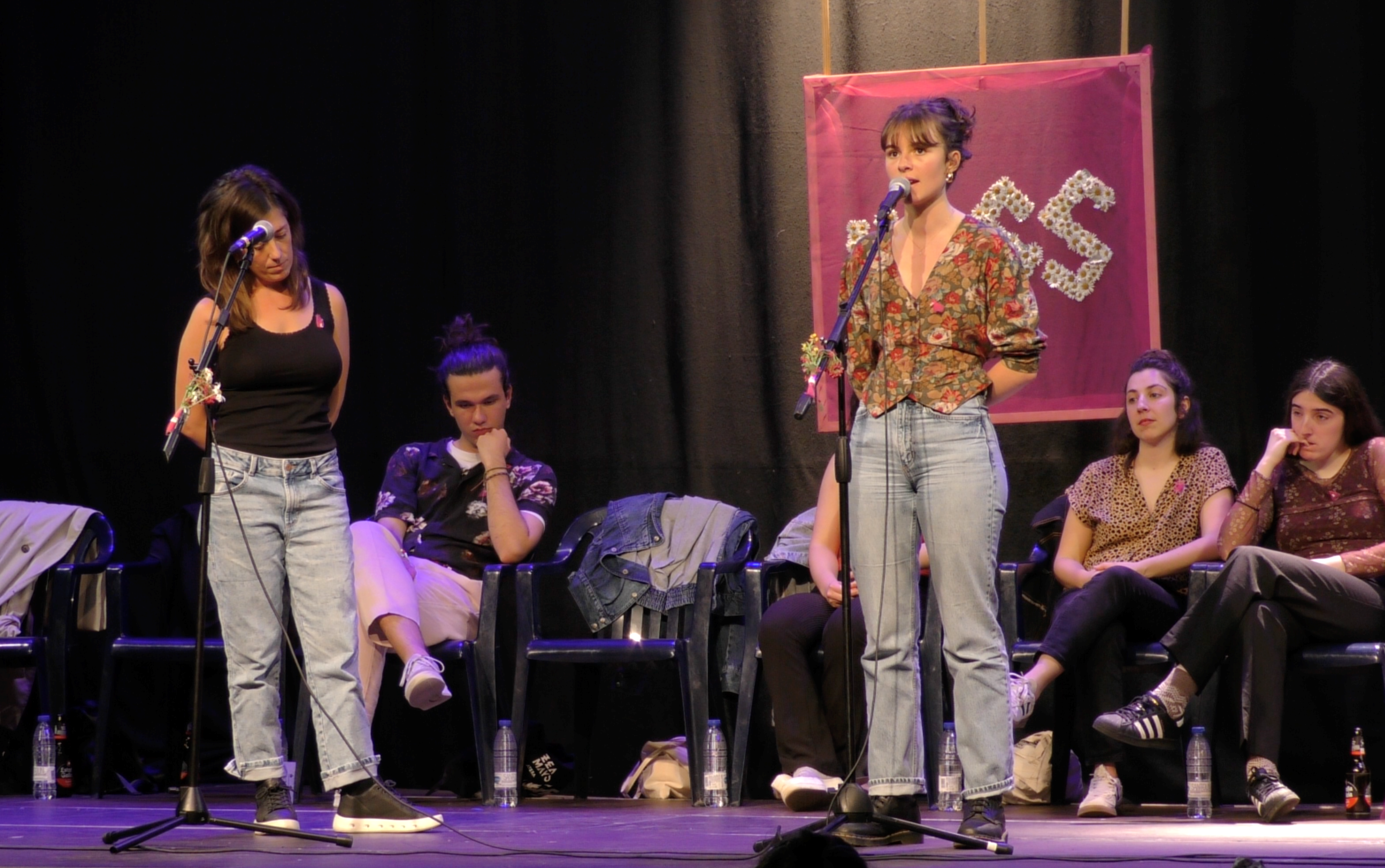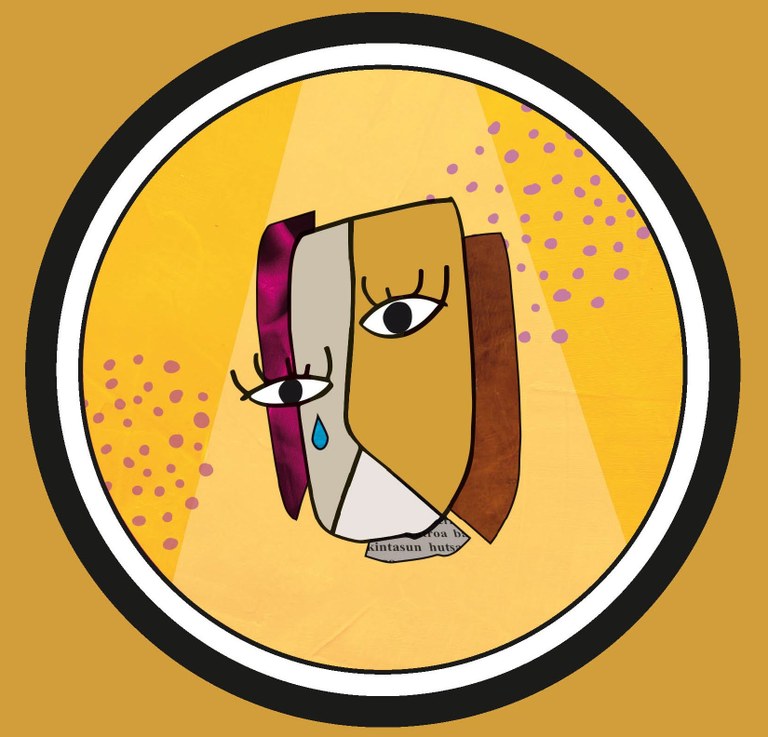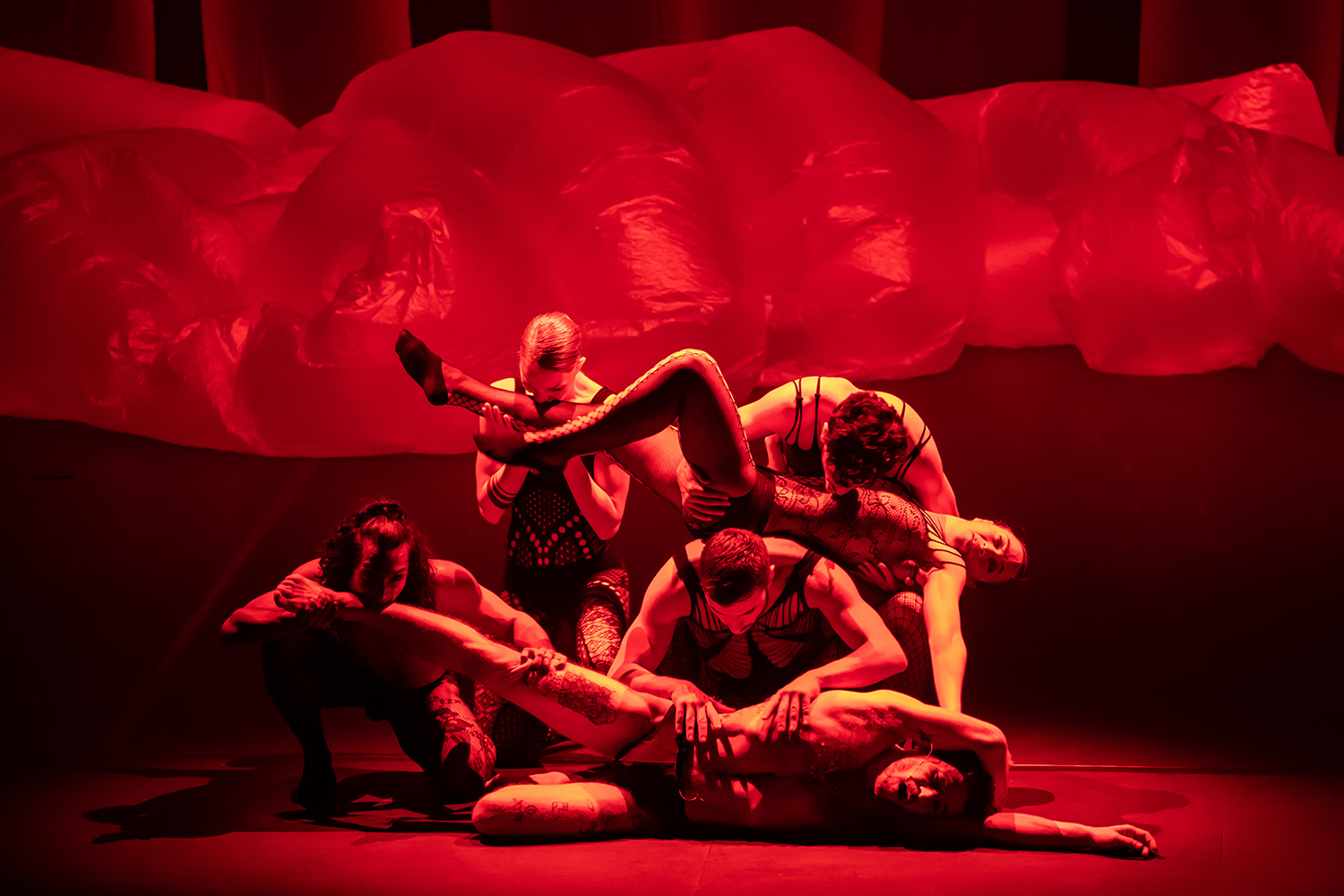"You won't be Baryshnikov, but you can dance in the town square."
- Ballerina and choreographer Becky Siegel sees movement everywhere, dancing everywhere. Even those who can barely move around. The experience has looked at him: he has been working for years, dancing, with chronic diseases, with elderly people and with people with chronic disease. It talks about the benefits that integrative dance has had in all of them. And also of those who had brought him.
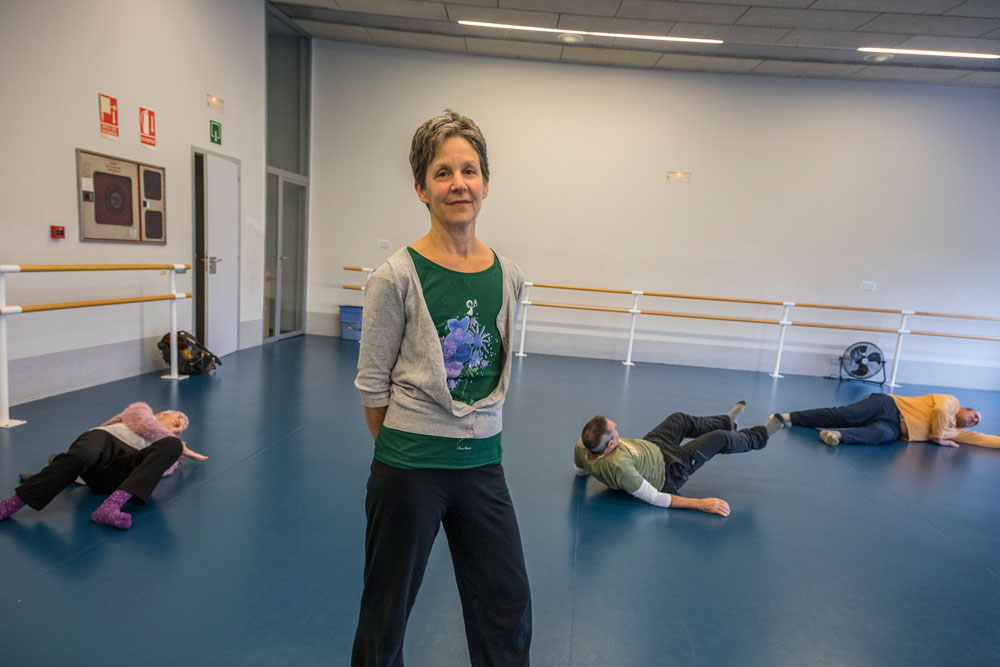
What is dance?
For me, life. It is a movement that takes place in time and space. I see dance everywhere. A dance is life itself, and you have to live with technique, composition and elegance, limit.
If there was no dance ...
I don't want to think! The truth is, I don't think I should think about it, because you can always dance.
Always?Despite the limitations, there is always
a dance, a way to dance.
But “I don’t know how
to dance.” You have to learn, it's a new language, and that's why it takes practice, you're willing to bend your leg and you don't have too many ego to be able to keep trying. With desire, anyone can learn.
Also – and you are here – people with reduced mobility.
You can find a starting point with anyone. With reduced mobility, we are looking for ways to promote mobility. It's like a kink, it's blowing and growing.
What is inclusive dance?Give access to those spaces and activities that have
not had access to them so far. More and more is being done, even if a great deal needs to be fought. Sometimes, the interesting thing is integration, bringing together people with different abilities in dance. At other times, I am in favour of working with specific populations. For example, working only with people in a wheelchair.
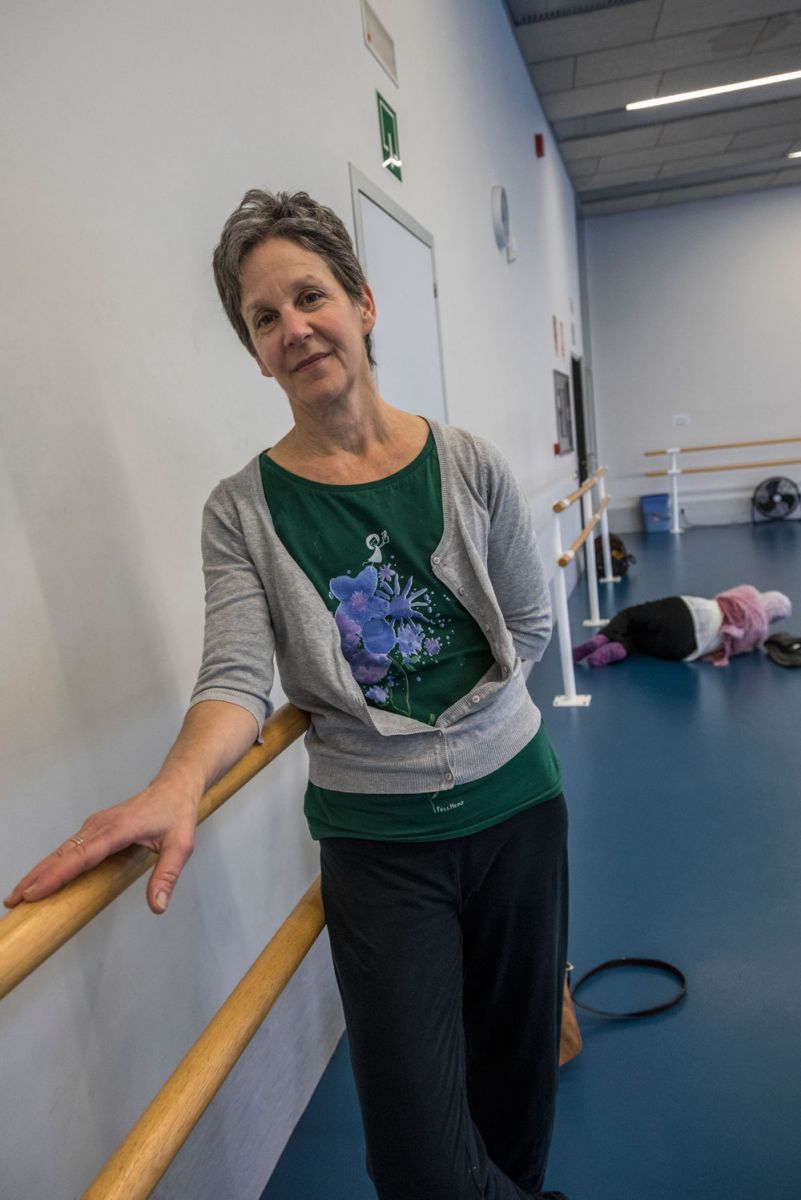
He began to delve into the subject with people with multiple sclerosis.
I wanted to do something to help people through dance. I had a physiotherapist student from the association of multiple sclerosis in Navarra. I suggested to her an opportunity, which she thought was good. I was careful to study things related to the disease, which was both convenient and inconvenient. It started and it was wonderful.
Why?
It was magical. We work on improvisation. We helped them move, because many had great limitations. It was amazing, but I was not surprised, because they also had what happened to all the dancers: dance you transforma.Es more, sclerosis leads you to have less and less mobility, but our students had more and more. Not everyone, because it's a hard disease, but we saw physical, psychic and artistic benefits.
You've also talked to people with Parkinson's and older people. What does dance give you?
Body consciousness. Dance makes the body feel like a harmonious being, feels like a positive being, something to enjoy. They also feel the pleasure of creativity, because we work with improvisation.
What did you give to you?
Any dancer, at an age, starts to think that he can no longer, that everything hurts him, that he has no energy... I started thinking ten years ago that I wouldn't keep pace, and now I think I'll dance forever, because I'll always have a way to dance, in almost any situation. Besides the joy, this gives me a lot of peace of mind, I will be able to keep learning, despite the changes that are happening in my own body. That is to continue to develop as an artist and choreographer. Everything stimulates me.
What are we when we dance?
We are music and music cure. I usually choose music very carefully, especially when it comes to frail people, because it influences a lot. It brings the music to our interior, we feel it inside, and all of a sudden, our body is an instrument.
Why do we dance so little?
Because people don't have time or are wasted on virtual accounts. The most wonderful thing about dance is that here and now it happens and the screen is invalid, you need at least three dimensions. Shame also influences, and I think in this country it is an endemic disease, although it is sometimes important and some should have more. There's also a lack of patience because dance is slow.
Isn't it because dance has an elitist image?
Yeah, and that's the best of inclusive dance, the idea of what anybody can do. Classical and contemporary dance dancers seem superhuman, because we've reached the technical level that seems almost impossible, and that maybe leaves the audience out, because it doesn't feel. But dance has so many facets that you can always enjoy it. You won't be Baryshnikov, but you can dance in the town square. It used to be like this, and that's dance, too. A good classic ballet is beautiful and you have to pay what's worth, but there's a lot more dance.
“Denverren (AEB, 1959) jaio arren, New Yorken eman nuen haurtzaroa, eta han hasi nintzen dantzan formatzen, Martha Graham eta Merce Cunninghamen mailako maisuekin. 1992an etorri nintzen Iruñera, eta hemen sortu nuen Tempomobile, dantza garaikideko konpainia. Madrilen master bat egiten ari nintzela nire bizitzan egindakoari buruz –hau da, dantzari buruz– gogoetatzen hasi nintzen, eta orduan, dantzaren bitartez jendea laguntzeko zerbait egiteko ezinegona piztu zitzaidan barnean. Hala hasi nintzen dantza integratzailean. Hari esker, betiko dantzatuko dudala pentsatzen dut orain, beti izango dudala nola dantzatu. Asko lasaitzen nau horrek”.
Azaroan estreinatu zuen bere lehenengo lana Nagore Tamayo dantzariak (Tolosa, 2000): Nondik abiatu inora izena du, eta Natalia Belén dantzariarekin batera gorpuztu du. Bere herrian egin dugu hitzordua, Zumardi Handian.
Festa egiteko musika eta kontzertu eskaintza ez ezik, erakusketak, hitzaldiak, zine eta antzerki ikuskizunak eta zientoka ekintza kultural antolatu dituzte eragile ugarik Martxoaren 8aren bueltarako. Artikulu honetan, bilduma moduan, zokorrak gisa miatuko ditugu Euskal Herriko... [+]
The idea that we in the dance world often repeat is that dance is ephemeral. The Elhuyar dictionary gives as a counterpart to "ephemeral" English: ephemeral, destructive, perishable, ephemeral, ephemeral, perishable, perishable, ilaun. I don't remember who I first read that idea... [+]
Moor Krad
By: Ertza company.
When: 3 October.
Where: In the Muxikebarri room of Getxo.
---------------------------------------------
Two years later I met the work Moor Krad, in which members of the company Ertza created and premiered the piece. So in 2022, I tried to... [+]











